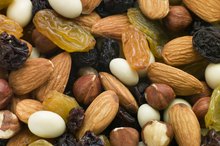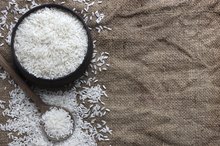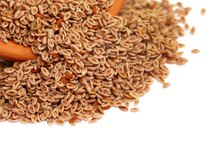What Are You Not Supposed to Eat If You Have Diverticulosis?
Ten percent of people in the United States over 40 years of age and 50 percent of people over age 60 have diverticulosis. Symptoms of this condition may include pain, constipation, gas and diarrhea, according to the National Digestive Diseases Information Clearinghouse, or NDDIC for short. Diverticula develop when weak spots in the walls of the colon bulge out forming sacs or hollow pouches. Although no diet is proven to prevent diverticulitis, which is a complication of diverticulosis, dietary changes help you avoid this painful problem.
Causes of Diverticulosis
Diverticulosis is theorized to develop as the result of a low-fiber diet. The additional strain and pressure on the colon as the result of constipation and difficult bowel movements may cause weak spots to bulge out and form pockets, which are called diverticula. Stool and bacteria caught in the pockets may cause the inflammation and infection associated with diverticulitis.
Refined and Fried Foods
What Things Are Found During a Colonoscopy?
Learn More
Avoid refined and processed foods, such as white rice, pasta and breads, made with refined flours, because they are lacking in fiber. Refined foods and fried foods take longer to digest and place greater pressure on diverticula, which are weak areas of the colon. Constipation and straining during bowel movements worsen diverticulosis.
Animal Products
Eat less red meat to prevent the formation of additional diverticula. Red meat, like refined foods, causes the colon to work harder during the digestive process. The additional force needed to expel stool places greater pressure on the walls of the colon, as reported by Harvard Health. The prevalence of diverticular disease is higher in meat eaters than in vegetarians. Eighty percent of diverticula, which are sacs, occur in the sigmoid colon located just above your rectum; people who consume the largest amount of meat have a 25 times higher risk of developing diverticulosis on the right side of the colon, according to Nutrition MD.
Seeded Foods
Do Some Foods Aggravate Diverticulitis?
Learn More
Seeded foods can worsen diverticulosis and possibly contribute to the development of diverticulitis by becoming stuck in the diverticula. These foods include nuts, caraway seeds, pumpkin seeds, sunflower seeds, poppy seeds, sesame seeds, foods with hard particles like popcorn, zucchini, tomato and cucumber seeds, grains in cracked-wheat bread, strawberries, raspberries and blueberries. Diverticulitis usually causes abdominal pain on the lower left side, fever, cramps and rectal bleeding.
Food Diary
According to the NDDIC, not all the prohibited foods have the same affect on everyone with diverticulosis. Keeping a food diary enables you to identify which foods contribute to the development of your symptoms and which foods you can tolerate without developing problems.
Related Articles
References
Resources
- Mayo Clinic: Diverticulitis Diet – Can Certain Foods Trigger an Attack?
- Drugs.com: Diverticulosis – What You Should Know
- GI Health: Diverticulosis and Diverticulitis
- The Ash Center: Diverticulosis
- Cleveland Clinic: Colonic Diverticular Disease
- University of Maryland Medical Center: Diverticular Disease
- Mayo Clinic: Can People with Diverticulitis Eat Nuts and Seeds?
Writer Bio
Sara Tomm began writing in 1971. She holds certificates in the medical, physiological and nutritional principles and treatment modalities for eating disorders. As a weight-management consultant, Tomm authored educational materials relating to the medical, psychological, environmental and social aspects of eating disorders, nutrition and physical fitness. She studied at Columbia University, Henry George School of Social Science, Farmingdale State College and Suffolk Community College.








